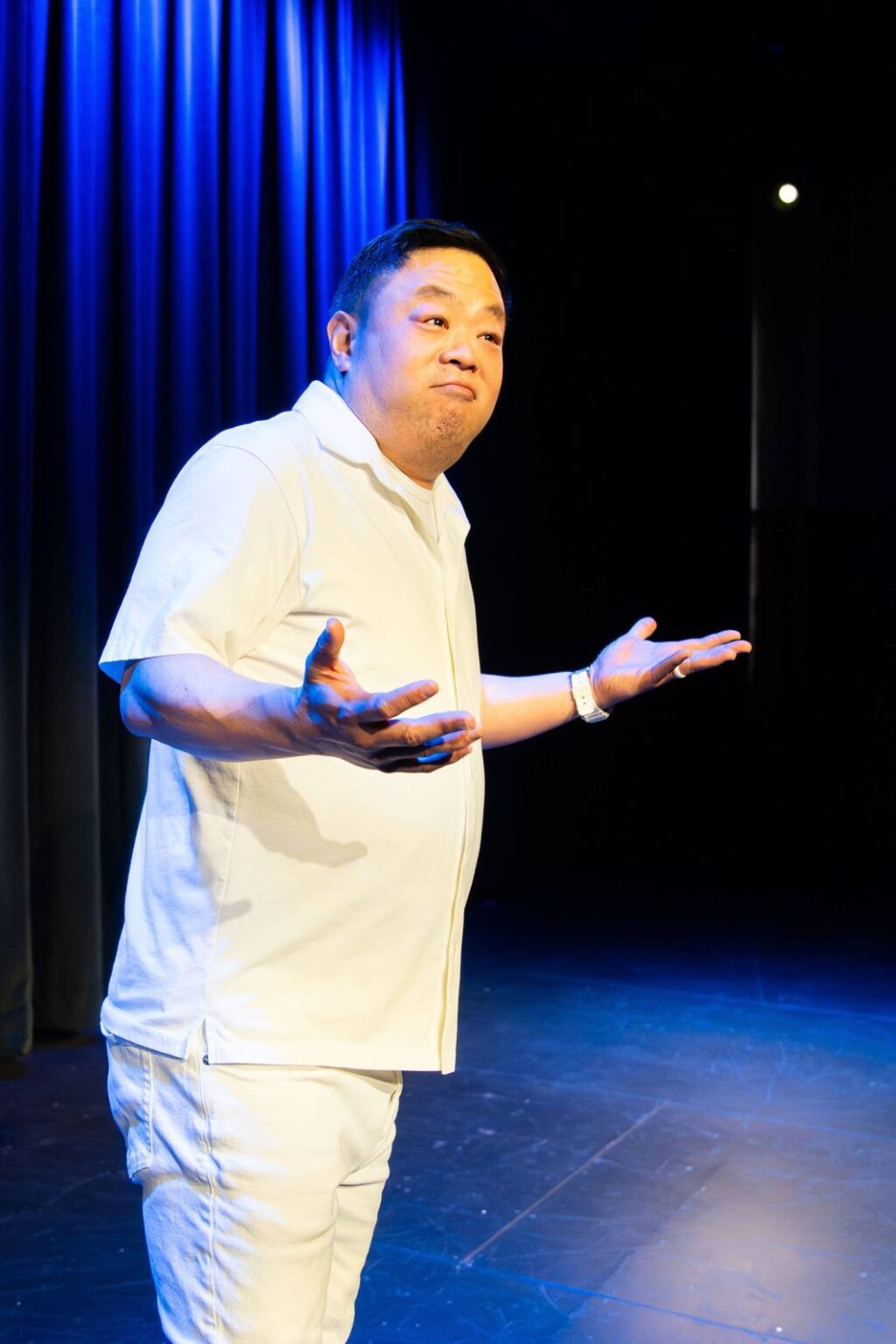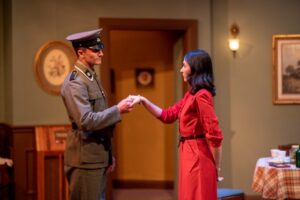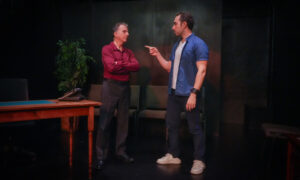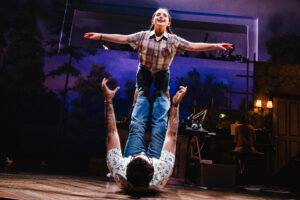45 minutes of stand-up comedy about death? The concept might be uncomfortable-to-appalling for some, but Sardines isn’t traditional stand-up and is less about death than about being the one left alive. Chris Grace, a veteran of Fringe theater, brings a refreshingly honest and vulnerable personal tale to Boston’s notably not-fringe Huntington, and it works!
The stage is bare save a single stool and darkish, Grace a little angelic in white shirt and jeans. Audience members educated long ago, myself included, were reminded that Emily Dickinson dressed in “Chinese white mourning” and assumed that the Chinese actor’s costume reflected that tradition. After all, he’s talking about death. At the after-party I asked a young Chinese woman from the audience, a freshman at BU, if white is indeed the color of Chinese mourning. “I’ve never heard that,” she said. “Maybe old peopIe still say that. I always heard wearing white is, you know, bad luck.” We both then asked Chris Grace about “Chinese white mourning,” who said, “I guess maybe I’ve heard something like that, but for me white is like a blank screen. I’m the screen.” So much for cherished cultural assumptions.
But for Grace the concept of “screens” is pivotal. He asks the audience to imagine a screen on which he, managing an imaginary laptop on an imaginary table, projects photographs from various specific dates. The first is a family photo including his mother, his partner, two siblings and himself. He banters about the purpose of the invisible photo as either a prompt for audience creativity or a reflection of the expense of renting equipment to project a real photo. Everyone laughs. Then, he tells the audience, within seven years everyone with him in the photo will have died, leaving him still alive.
This is the theme of Sardines, the term a hide-and-seek game variant in which players simply join the hidden one until only a single player remains, alone. Grace tells of sequential phone calls from a sister documenting family deaths until he considers just never answering her calls. He describes the sudden death of his partner, the emergency procedures detailed by the 911 operator that he desperately followed to no avail. And then he admits to a sort of adjacent thought amid the crisis, that he could use his experience pushing his partner’s chest “hard enough to break his ribs” in a show. Throughout, Grace owns up to those unflattering, often silly and basically reprehensible side-thoughts we all have and never admit. He’s a short, stocky and charmingly brave little Chinese Everyman living the hard questions on an empty stage.
On her deathbed, his mother beckons him to come close and he anticipates a message of great wisdom. Finally, head bent close in order to hear, he’s told, “You need to lose weight.” His father, when Grace announced that he was gay, said only three things – that Grace should give up acting, get a degree in computers and marry a woman. After nearly a decade of silent alienation, Grace moves to California to care for his dying father. His final words to Grace? “Give up acting, get a degree in computers and marry a woman.” Grace makes us laugh at this because what else can you do?
He asks if art, like his show, can be a hedge against or palliative balm to the awful inevitability of death. And he admits that he doesn’t know. At the opening, he says he wants to offer something other than the usual bromides about dealing with death – the repetitive “just enjoy every day” mantra. At the end he shrugs and concedes that, really, there’s nothing else to say.
Sardines (a comedy about death) by Chris Grace, director, Eric Michaud
September 30 – November 16
The Maso Studio at the Huntington Theatre, 264 Huntington Ave., Boston, 02115
Tickets starting at $29









